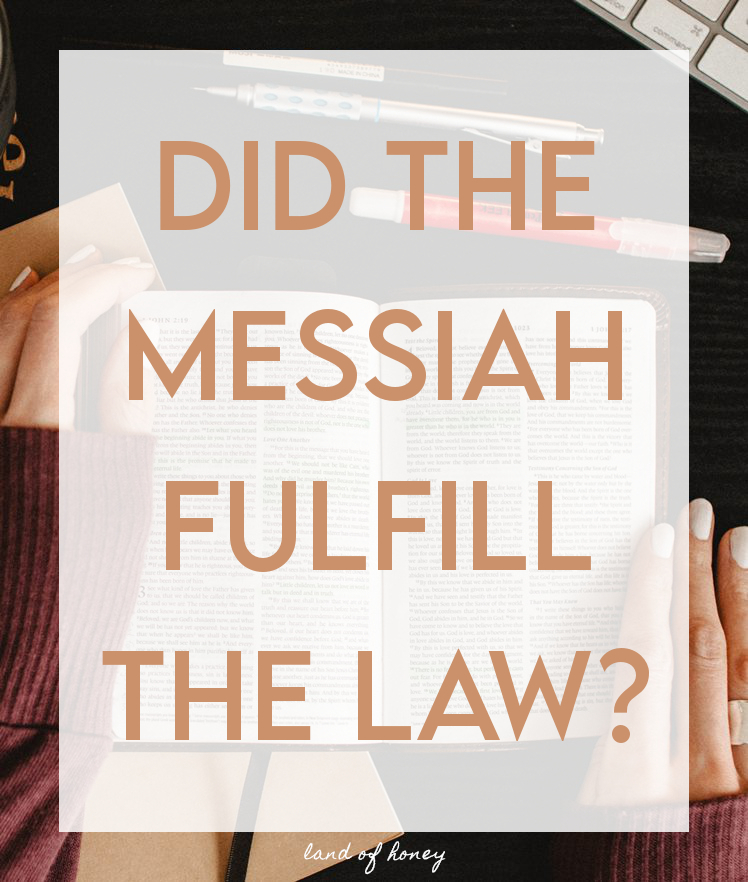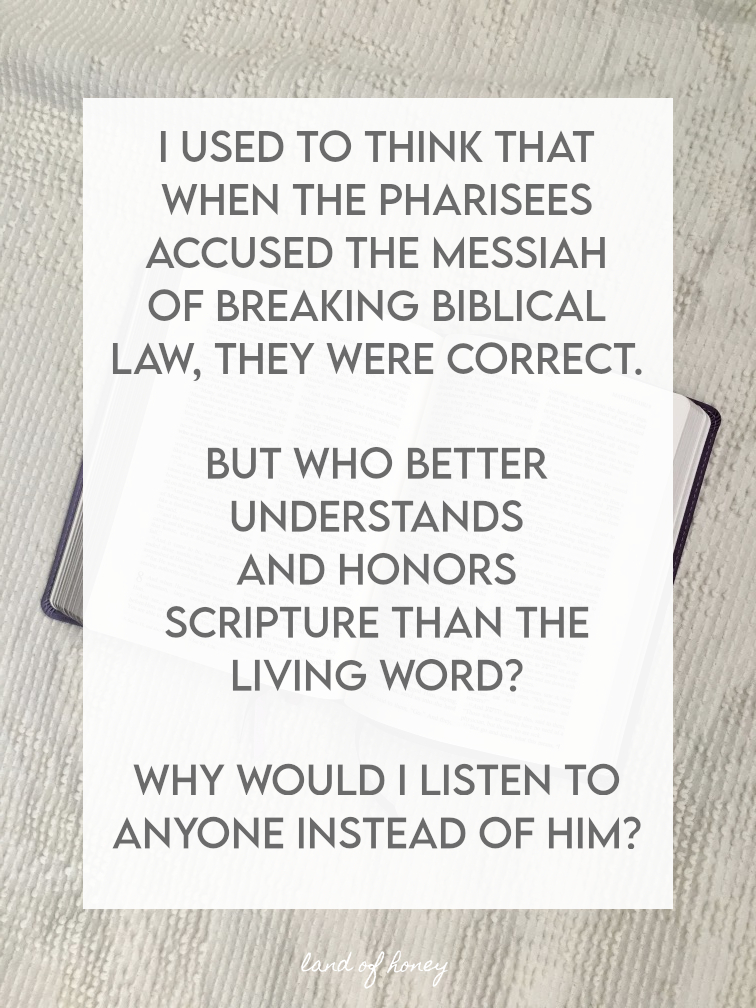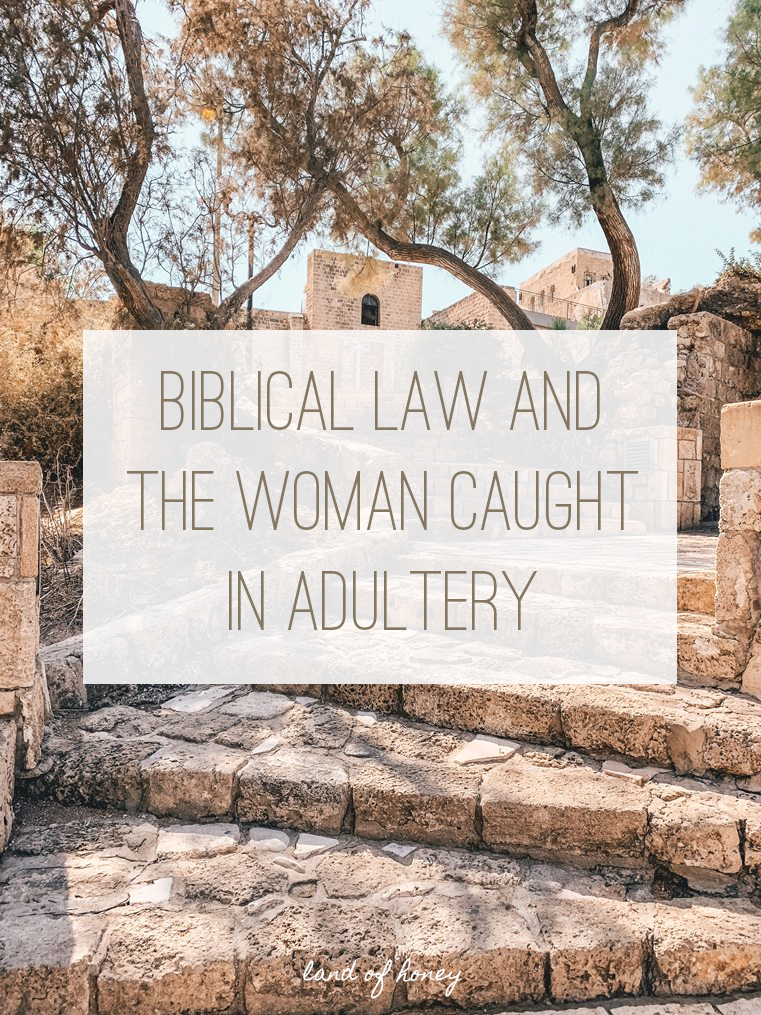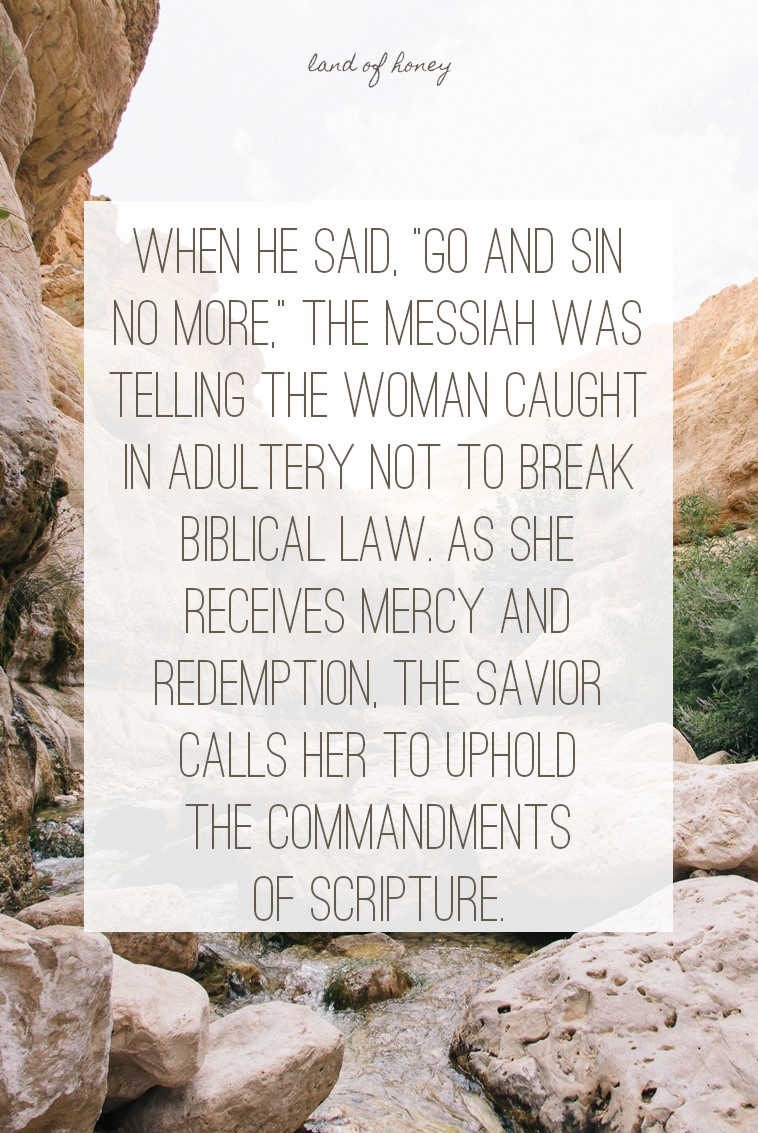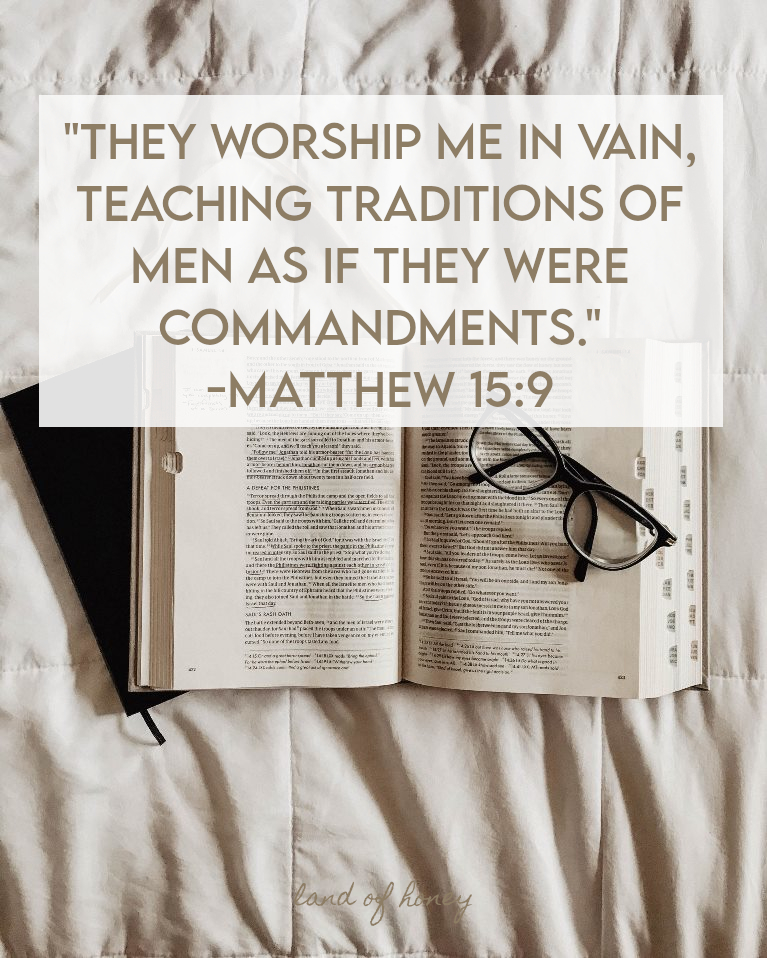I think the story of Mary and Martha, where Jesus is at their house and Martha is upset that Mary is not being more helpful, has probably caused more frustration than maybe any of the Messiah's words. His statement in Luke 10:41-42 "Martha, Martha, you are upset and worried about many things - but only one thing is needed. Mary has chosen what is better, and it will not be taken from her," has been misunderstood as a criticism of Martha worrying about a meal. We've misunderstood some things in this story, and this post will shed light onto what was actually happening and what was meant in this part of Scripture.
Who were Mary and Martha?
They were sisters who were both devoted followers of the Messiah during his ministry. The Bible speaks highly of the faith of each of them, and says that Jesus loved them both (John 11:5). They were from Bethany, and they hosted Jesus in their home. Their brother was Lazarus - who was raised from the dead by the Messiah. We see Mary and Martha in the Bible in Luke 10, John 11, and John 12.
The story of the confrontation between Martha and the Savior about Mary's lack of help is found in Luke 10:38-42.
We are told the story goes like this...
Mary and Martha were followers of the Messiah, and they were hosting him and many of his Disciples in their home. While Jesus was waiting on lunch to be served, he began teaching those who were there. Martha was hard at work in the kitchen, preparing an elaborate meal. But her sister Mary sat down to listen to the words the Messiah spoke instead of helping with the food or setting the table. Martha felt annoyed that she was stuck doing all the hospitality work for this large group of people and became upset...and then Jesus reprimands her. He tells her she's making too much food and losing sight of what's most important. He says that Mary made the wiser choice by not helping in the kitchen.
Over and over I have heard that story used to reprimand women for the work they do in providing nourishment to others. It's also used to shush women if they raise any qualms about needing help with making dinner or church kitchen responsibilities. Don't complain, you're the one choosing the less important thing.
Jesus told Martha that "only one thing is required." I've heard many times from the pulpit and Bible studies that this reprimand was because Martha was making too many separate dishes, when she should have just made one simple thing so that she would have had time to come listen herself while the soup simmered or whatever.
I actually remember being in the Christ for the Nations bookstore and seeing a cookbook called something like, "Only One Thing is Needed." It was inspired by the words of the Messiah and filled with recipes for casseroles, stews, and other one-dish meals.

I probably don't have to tell you how much frustration, shame, guilt, and annoyance this interpretation of the notorious Mary/Martha story has caused millions of women. Throughout history women have been given the workload of feeding, not just their families, but relatives, neighbors, coworkers, and church members. They are tasked with figuring out what picky eaters will eat and feeding them multiple times a day. They are called on to feed hundreds of people at funerals and other church functions. They are expected to take meals to new mothers, the elderly, the sick, and the bereaved. If there's an office party that food needs made for, who prepares it is mostly decided not by their position in the company, but by gender. Moms step up to feed the basketball team after games. Women around the world cook for dozens of people to make family reunions possible and make meals to celebrate birthdays and countless occasions. They do this work heroically, with limited budgets, accounting for dietary restrictions and preferences, limited ingredient availability, and often on short notice. This work typically goes unappreciated, their work not valued or noticed, and is almost always done without pay. It's rare for men to pitch in their share of cooking and clean up at events like this. While many women do this work joyfully, it is still work, and I don't know anyone who would prefer kitchen duty to listening to the Messiah speak.
No one wants to be Martha in this story, doing the work while missing out on what's better. Plenty of women wish they had more time for Bible study or hearing the words of Jesus...but who is going to feed everyone? The simple reality is that most people cannot afford take-out or convenience foods every night...to say nothing of the significant cost of professional catering for large events. Even if you are able to outsource this kind of work, it just puts someone else in the position of having to do the cooking when they could be doing something else. And now Martha is getting in trouble (from Jesus himself, no less) because she was taking too much time to cook for everyone?! How fair is that?
I've struggled for years to understand this story. Surely the point of this story is not to manage your time better or you'll get into trouble? The point can't be that making meals is a bad thing. The point can't be that if you say that you want help then you're doing something wrong. Surely Jesus, who so often saw and recognized the needs of women and always treated them with kindness, wasn't mad at a woman working hard to provide a meal for him and his followers?
In fact, this whole incident is quite brief and much of what we've talked about has been assumed, not actually taken from the word of God. Luke 10:38-42 is limited to these words:
Now it happened as they went that he entered a certain village; and a woman named Martha welcomed him into her house. And she had a sister called Mary, who sat at Jesus' feet and heard his word. But Martha was distracted with much serving, and she approached him and said, "Don't you care that my sister has left me to serve alone? Tell her to help me." And Jesus answered and said to her, "Martha, Martha, you are worried and troubled about many things. But one thing is needed, Mary has chosen the good part, which will not be taken away from her."
Did you catch that there's no mention of cooking a meal here? Martha was busy serving. The Bible does not say that she was busy with serving food to the Messiah. It says she was busy serving. Big difference.
The word used for serving in Luke 10:40 when it says that Martha was busy serving is diakonia. This is usually translated to mean:
1. service, ministering, especially of those who execute the commands of others
2. of those who by the command of God proclaim and promote religion among men
3. the ministration of those who render to others the offices of Christian affection, especially those who help meet need by either collecting or distributing of charities
4. the office of deacon in the church
5. the service of those who prepare and present food
We can see from this definition, this word is rarely used to mean preparing food. Given the context of the definition, even if food is being talked about it's more likely to mean cooking for a huge crowd for charity reasons, and not so much for a dinner party in a home setting.
Just to demonstrate that diakonia is rarely used in the context of cooking and serving a meal at home, we see it translated otherwise in these places:
But we will give ourselves continually to prayer, and to the ministry of the word. -Acts 6:4
His purpose was to equip God's people for the work of serving and building up the body of Messiah. -Ephesians 4:12
Barnabas and Saul returned from Jerusalem when they had fulfilled their ministry. -Acts 12:25
God gave us the ministry of reconciliation. -2 Corinthians 5:18
I know your works, your charity, and service, and faith. -Revelation 2:19
Given verses like these, and that Paul frequently used this word to describe his ministry, it seems unreasonable to assume that the service Martha was doing was serving one meal at home. The way Martha describes Mary's actions further supports this understanding of the verse. When Martha says that Mary has left her she uses the word kataleipo, which means forsaken. If this passage was truly about Martha wanting help with dinner, I doubt she would have chosen such a strong term to describe Mary's slipping away for a few minutes to hear the Messiah speak.
It's most likely that what Martha was doing was running some sort of ministry. Maybe she was caring for orphaned children or lepers. Perhaps she had been assigned charity tasks by a religious leader in her community. She may have been doing deacon work (yes, the New Testament mentions several women as deacons). She could have been working on an outreach project to share good news within or outside of her community. Or she could have been working on collecting and distributing charity to the poor or unwell.
Many scholars believe that Mary and Martha (as well as their brother Lazarus) were part of the Essenes - a religious sect of their day. The Essenes were known for charity work and did much caring for the sick and providing for the poor. So that would certainly fit with the idea that Martha was doing ministry work instead of sitting at the Messiah's feet.
This is why Martha takes her complaint up with the Messiah, and not her sister. If this was about putting a meal on the table, she likely would have told Mary that she needed help. But instead Martha went to Jesus and asked, "Don't you care that my sister has forsaken me to do this work by myself?" I think that was her way of saying, "I am doing all this work for you, and if you cared then you would send someone to help me." She's not talking about setting the table or dishing up the food. She's not talking about needing a hand for a few minutes with clean up. She's talking about significant ministry projects.
And we should note that the Messiah is not upset with Martha! Most of grew up believing that his "Martha, Martha" statement was paired with an eyeroll or came out of frustration. We think of the famous, "Marcia, Marcia, Marcia," line from The Brady Bunch and think of someone who has lost their patience with this person. But that's not the case here. Instead of belittling Martha for her choices (no matter if that's making a meal or running a ministry), Jesus speaks tenderly to her. His repetition of her name was said out of concern or empathy, which fits with what he says next, "You are anxious and worried." He's not making fun of her. He's not criticizing her. He's empathizing with how she feels. He's showing her that he does care.
And what Mary was doing was not shirking practical work so that she could do what she wanted - however spiritual that was. I used to picture Mary's actions as selfish. I would picture the busyness of my grandma's kitchen when she was making a meal for her large family - meat need to be sliced, gravy made, the potatoes mashed, vegetables chopped, water poured, the table set - and it would seem like rather than helping her God wanted me to go sit down and read my Bible? Wouldn't that be unkind of me to leave my grandma with all that work? Wasn't it unkind of Mary to expect Martha to serve her along with everyone else they had in their home?
But that is entirely the wrong picture to have about Mary and Martha!
We should also note the wording in Luke 10:39, that says Mary was sitting at the feet of the Messiah. This is not necessarily a reflection of her physical posture (though it could have been). Sitting at the feet was a phrase that was used to describe someone learning from a teacher and being their disciple. That's significant because many have taught and believed that women can't be disciples, in direct contrast to what Scripture teaches and demonstrates. This information also changes the narrative from a picture of Mary sitting and listening to Jesus for an hour or so while Martha cooked, to an ongoing habit in their lives.
.JPG)
Luke 10:38 says that the sisters "opened their home" to the Messiah. It does not tell us if that was for one day or many. In the traditional rendering of the story, it's easy to assume that it was for one meal or one evening. But there's no reason to think it couldn't have been for a longer period of time. That would mean this wasn't about the logistics of one meal. Days or weeks could have passed where Mary was being discipled by Yahusha, while Martha was continuing on with the ministry by herself.
This gives us perspective on where Martha was coming from when she went to the Messiah. Don't you care that I'm stuck doing all this work for you by myself? This was not about the practical logistics of one meal, but likely an ongoing situation where Martha saw the needs in her community, and wasn't sure how they could be met without her. She was working to help people, and she wrongly believed that she couldn't stop to listen to the words of the Messiah or to grow in relationship with him. Like Peter when he walked on water, she wound up focusing on the storm around her and not listening to the Messiah's words. We see similar mindsets today when people believe that there is too much work to be done to pause and worship on the Sabbath day, or when our focus is on doing good deeds ahead of spending time with YHWH.
Yes, good works are an important part of our faith. As James says, "Faith without works is dead." What we do is important. But the Bible also teaches that hearing Scripture is what equips us to do those good deeds. If we do not spend time on our relationship with the Messiah, we will not be equipped and our works will not have the same impact. And, like Martha, it will often leave us feeling anxious and perhaps not cared about by God.
The story of Mary and Martha is in no way a reprimand to the millions of women who spend more time in the kitchen than they would prefer. And it's certainly not a prohibition against serving side dishes. Jesus was not mad at Martha, but had compassion for the worry that she dealt with from not pausing to be with him. This story is a reminder that the weight of the world does not fall on our shoulders. It's a reminder that a lifestyle of time spent in Scripture, prayer, and worship is foundational to good works. It's a permission slip to prioritize your relationship with the Messiah above getting things done in his name.
Related posts on women in the Bible:
Overlooked Truths in Proverbs 31
The Significance of Sarah in Scripture
A Woman of Valor



.JPG)

.JPG)
.JPG)
.JPG)





